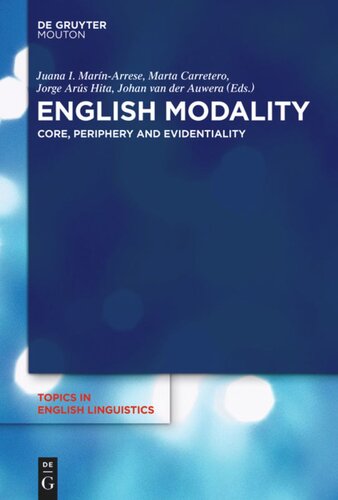

Most ebook files are in PDF format, so you can easily read them using various software such as Foxit Reader or directly on the Google Chrome browser.
Some ebook files are released by publishers in other formats such as .awz, .mobi, .epub, .fb2, etc. You may need to install specific software to read these formats on mobile/PC, such as Calibre.
Please read the tutorial at this link: https://ebookbell.com/faq
We offer FREE conversion to the popular formats you request; however, this may take some time. Therefore, right after payment, please email us, and we will try to provide the service as quickly as possible.
For some exceptional file formats or broken links (if any), please refrain from opening any disputes. Instead, email us first, and we will try to assist within a maximum of 6 hours.
EbookBell Team

0.0
0 reviewsThe book presents new issues and areas of work in modality and evidentiality in English(es), and in relation to other European languages (French, Galician, Lithuanian, Spanish). Given the complexity of the relations among modal and evidential expressions, their constant diachronic evolution, and the variation found in different English-speaking areas, and in different genres and discourse domains, the volume addresses the following issues: the conceptual nature of modality, the relationship between the domains of modality and evidentiality, the evolution and current status of the modal auxiliaries and other modal expressions, the relationship with neighbouring grammatical categories (tense, aspect, mood), and the variation in different discourse domains and genres, in modelling stance and discourse identities.